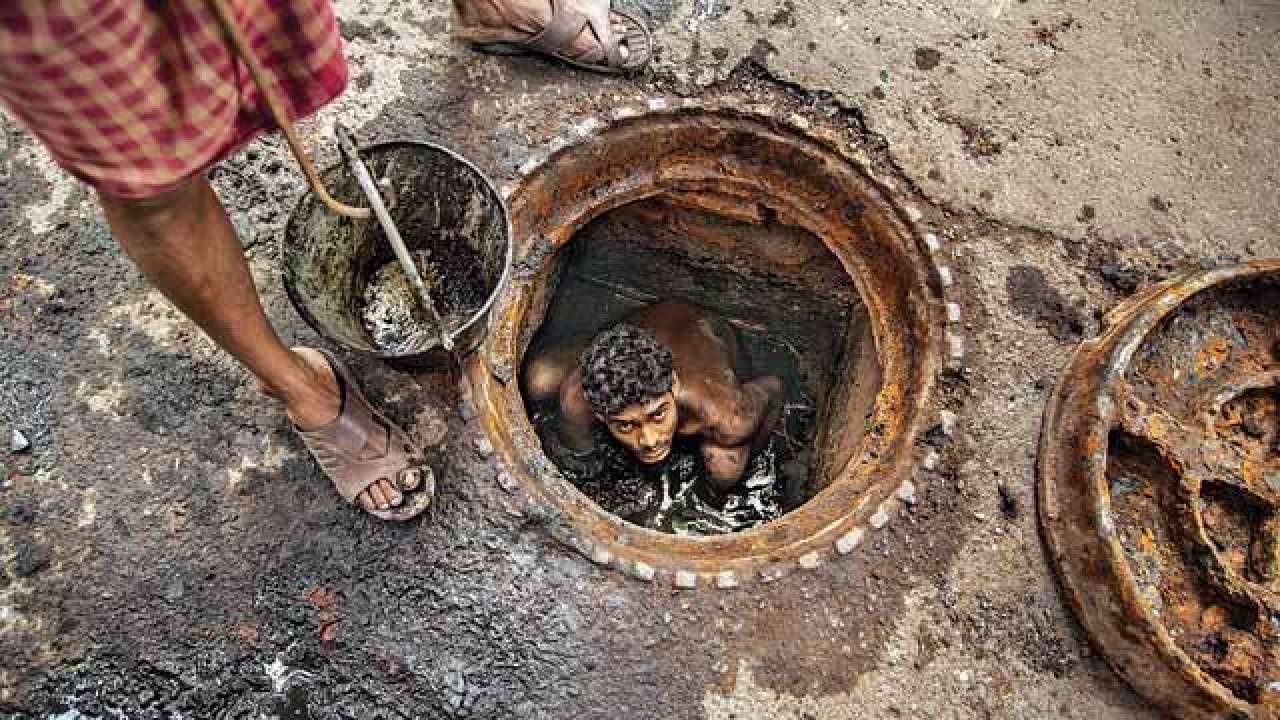As many as 347 people have died while cleaning sewers and septic tanks in India in the last five years, with Uttar Pradesh, Tamil Nadu and Delhi accounting for 40 per cent of these fatalities, according to government data.
Responding to a question in Lok Sabha, Social Justice and Empowerment Minister Virendra Kumar on Tuesday said 92 such deaths were recorded in 2017, 67 in 2018, 116 in 2019, 19 in 2020, 36 in 2021 and 17 deaths in 2022.
Manual scavenging is a banned practice under the Prohibition of Employment as Manual Scavengers and their Rehabilitation (PEMSR) Act, 2013. The Act bans the use of any individual for manually cleaning, carrying, disposing of or otherwise handling in any manner, human excreta till its disposal. According to the data presented in Rajya Sabha by Minister of State for Housing and Urban Affairs Kaushal Kishore, 47 workers died while cleaning sewers and septic tanks in Uttar Pradesh, 43 in Tamil Nadu and 42 in Delhi.
”Thirty-six such deaths have occurred in Haryana, 30 in Maharashtra, 28 in Gujarat, 26 in Karnataka, 19 in West Bengal, 14 in Punjab and 13 deaths in Rajasthan,” he said.
In the national capital, the number of lives lost during the cleaning of sewers and septic tanks stood at 13 in 2017; 11 in 2018; 10 in 2019 and four each in 2020 and 2021, the minister noted. He added that the government has formulated ‘National Action Plan for Mechanised Sanitation Ecosystem (NAMASTE)’ scheme which aims to bring the number of such fatalities to zero, and ensure that all sanitation work is performed by skilled workers and no sanitation workers come in direct contact with human faecal matter.

















